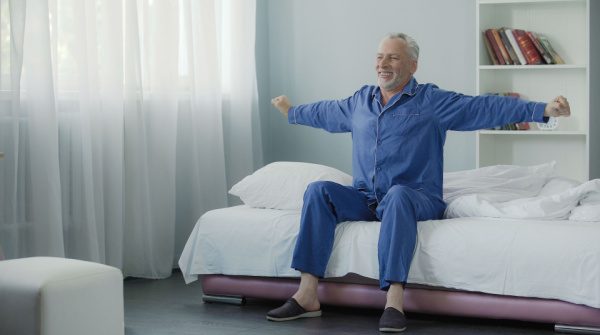Sleep is often underestimated when it comes to managing Type 2 Diabetes. Research has shown a significant link between poor sleep quality and elevated HbA1c levels, a key indicator of long-term blood glucose control.

In this blog, we delve into the intricate relationship between sleep and diabetes. Discover how insufficient sleep affects HbA1c levels, the underlying mechanisms involved, and practical strategies to improve sleep quality for better diabetes management.
The Impact of Poor Sleep on HbA1c Levels
Unveiling the hidden link between inadequate sleep and elevated HbA1c levels in individuals with type 2 diabetes, emphasizing the significance of quality sleep in blood glucose control and overall health.
- Disrupted Insulin Sensitivity:
Inadequate sleep can impair insulin sensitivity, leading to reduced glucose uptake by cells and increased blood sugar levels. This disruption contributes to higher HbA1c levels over time.
- Altered Appetite and Cravings:
Sleep deprivation disrupts the balance of hunger-regulating hormones, such as leptin and ghrelin. This imbalance can result in increased appetite, cravings for sugary and high-carbohydrate foods, and overeating, ultimately impacting blood glucose control and HbA1c levels.
Read more: Diabetes Diet | Ways To Map Out Your Nutrition
- Elevated Stress Hormones:
Lack of quality sleep triggers the release of stress hormones like cortisol, which can raise blood sugar levels. Prolonged exposure to elevated cortisol levels can lead to chronically elevated HbA1c levels in individuals with type 2 diabetes.
- Impaired Sleep-Wake Cycle:
Irregular sleep patterns and poor sleep quality can disrupt the body’s natural circadian rhythm. This disruption affects glucose metabolism, resulting in elevated HbA1c levels and compromised diabetes management.

Strategies for Improving Sleep Quality
Discover effective methods to enhance your sleep and optimise blood sugar control by implementing these practical strategies tailored to improve sleep hygiene and promote restful nights.
- Establish a Consistent Sleep Routine:
Set a regular sleep schedule and aim for 7-9 hours of quality sleep each night. Create a relaxing bedtime routine to signal your body that it’s time to wind down.
- Create a Sleep-Friendly Environment:
Make your bedroom conducive to sleep by keeping it cool, dark, and quiet. Remove electronic devices and minimize exposure to screens before bed.
- Practice Relaxation Techniques:
Engage in activities like deep breathing exercises, meditation, or gentle yoga before bed to promote relaxation and reduce stress levels.

- Prioritize Regular Exercise:
Engaging in regular physical activity can promote better sleep quality. Aim for at least 30 minutes of moderate-intensity exercise most days of the week.
- Limit Stimulants and Heavy Meals:
Avoid consuming caffeine, nicotine, and large meals close to bedtime, as they can disrupt sleep patterns and digestion.
Recognizing the significant impact of poor sleep on HbA1c levels in type 2 diabetes is crucial for effective diabetes management. By prioritizing sleep hygiene and implementing strategies to improve sleep quality, individuals with diabetes can positively influence their long-term blood glucose control.
Remember, a good night’s sleep is not only restorative but also an essential pillar for managing type 2 diabetes and achieving overall well-being.





Required consult diabitologist